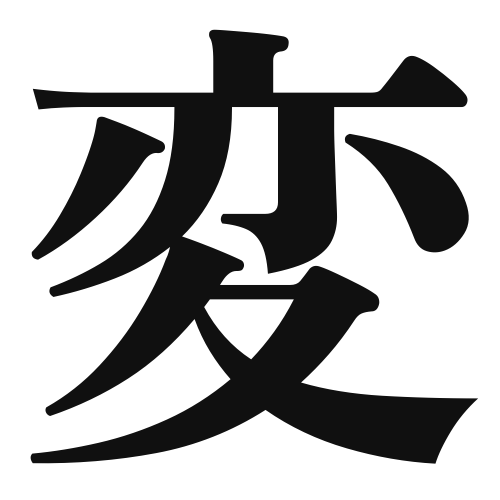1. Overview of Meaning
The kanji “変” (hen) primarily means “change” or “strange.” It is often used to describe something that is different from the norm or something that has undergone a transformation.
2. Formation and Radical
The kanji “変” is a compound character (会意文字) that combines the elements of “化” (to change) and “偏” (side). The radical of this kanji is “刀” (sword), which is associated with cutting or change.
3. Examples of Usage
Common words and phrases that include “変” are:
- 変化 (henka) – change, transformation
- 変わる (kawaru) – to change
- 変な (hen na) – strange, weird
Example sentences in daily conversation:
- 最近、天気が変だね。 (Saikin, tenki ga hen da ne.) – The weather has been strange lately.
- 彼は変わった人だ。 (Kare wa kawatta hito da.) – He is a changed person.
4. Synonyms and Antonyms
Similar kanji with related meanings include:
- 変化 (henka) – change, which emphasizes the process of changing.
- 異 (i) – different, which focuses more on the aspect of being different rather than the process.
Antonyms include:
- 安定 (antei) – stability, which signifies a state of being unchanged or steady.
5. Cultural and Historical Background
The kanji “変” is deeply rooted in Japanese culture, often associated with the concept of transformation in various contexts, such as personal growth or societal changes. It appears in many proverbs and idiomatic expressions, such as:
- 変わり者 (kawari mono) – a person who is eccentric or unusual.
- 変化球 (henka kyuu) – a change-up pitch in baseball, symbolizing a strategic change.
These expressions reflect the cultural significance of change and the acceptance of diversity in Japanese society.
